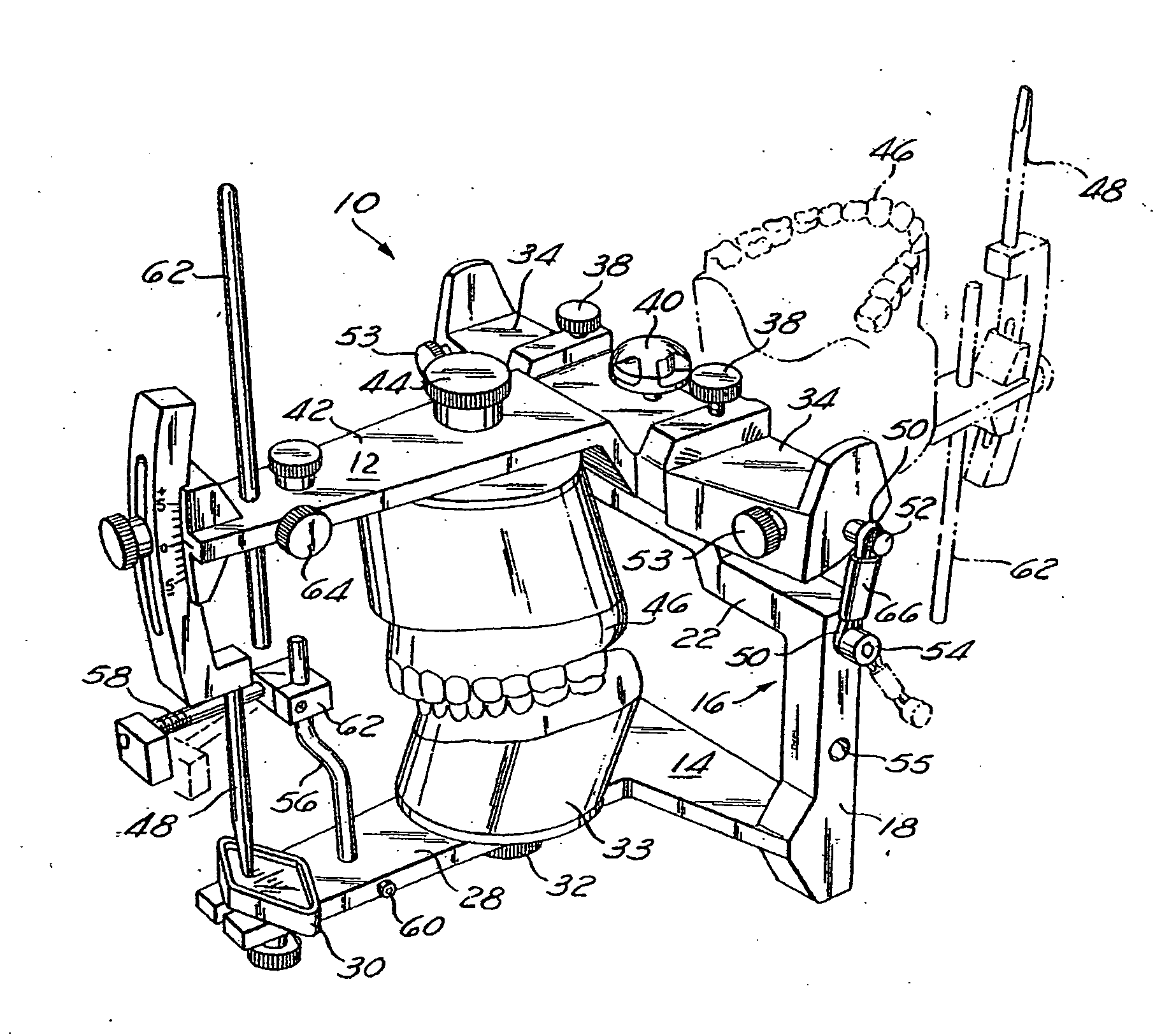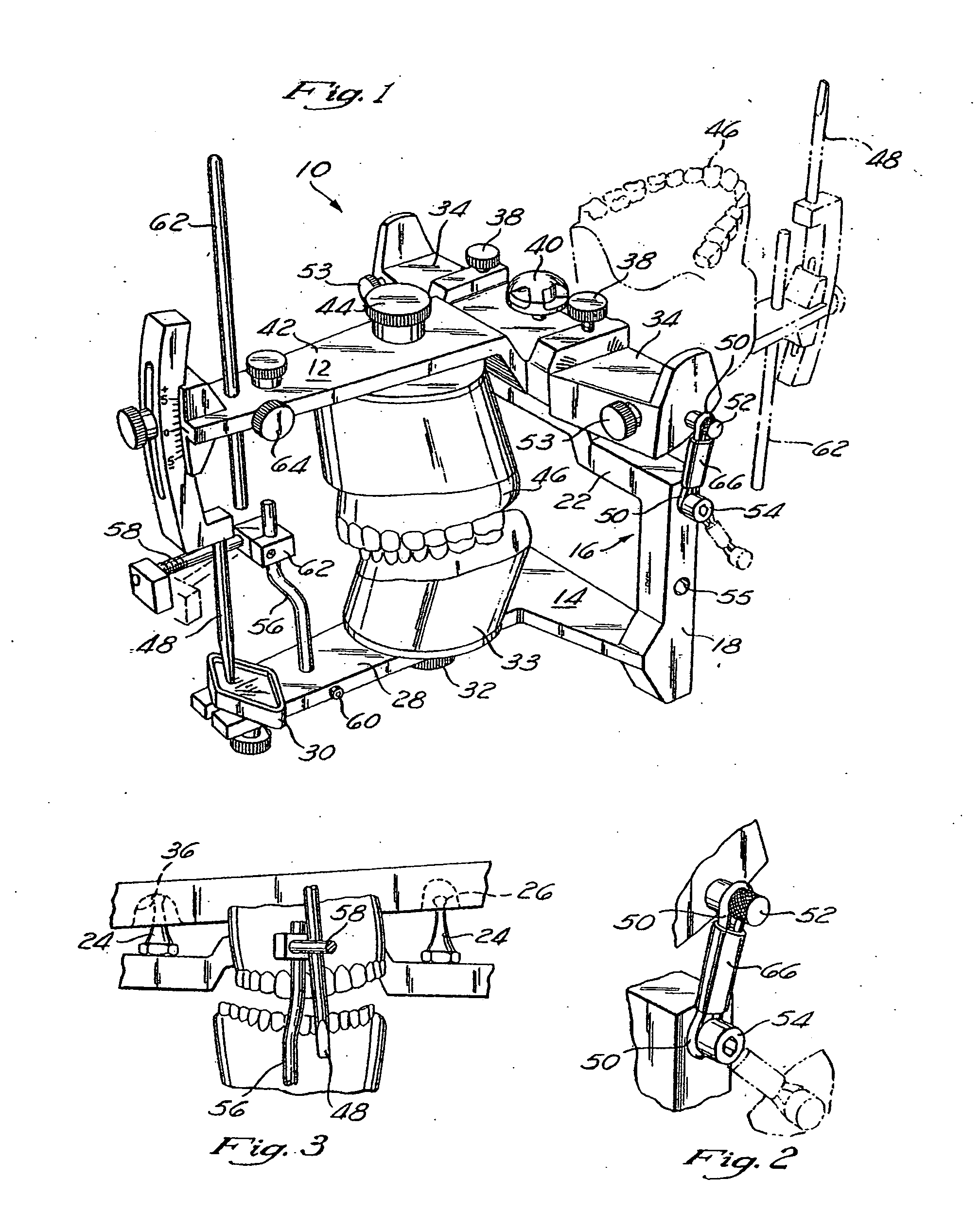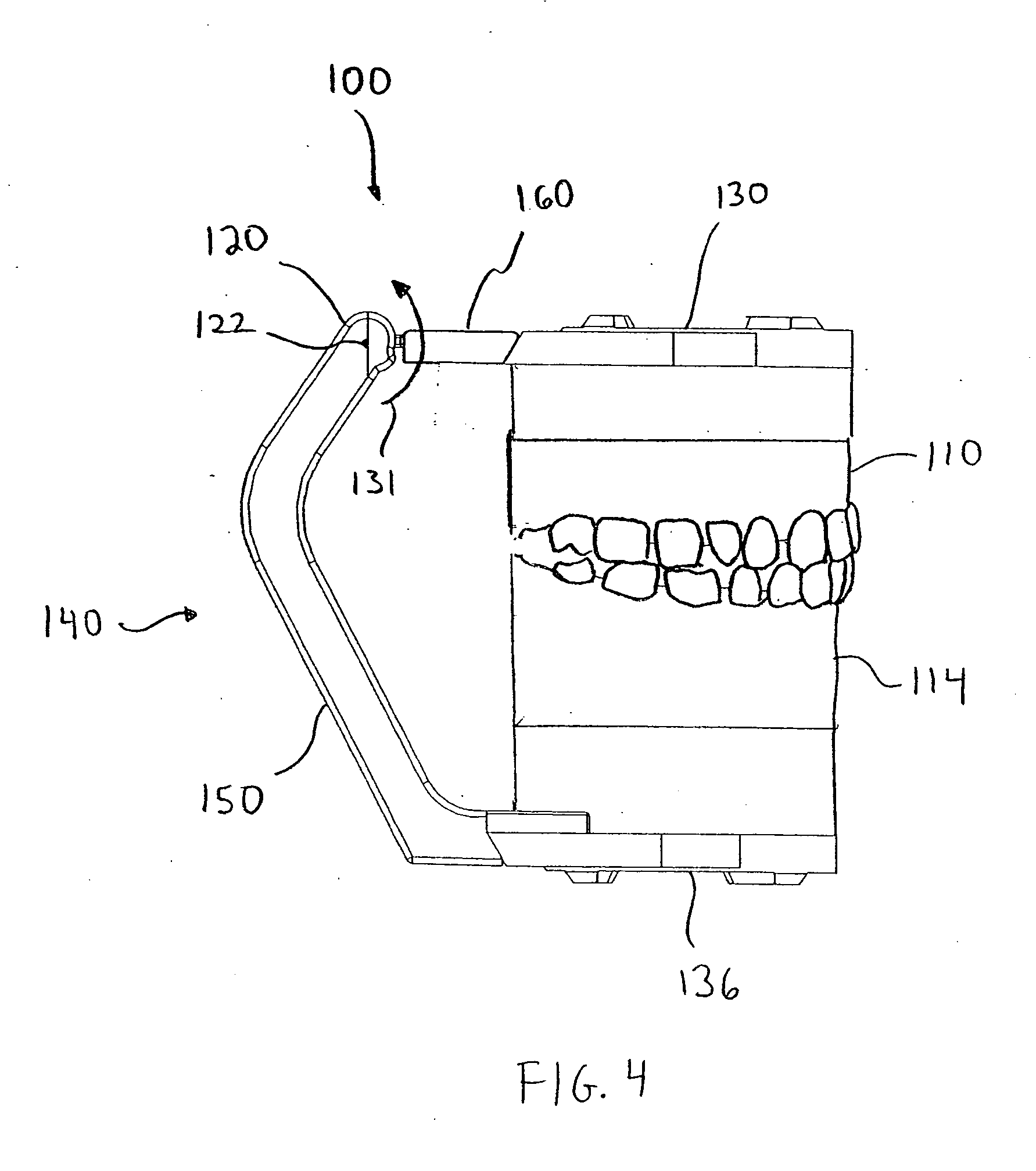Dental articulator
a technology of dental articulators and articulators, which is applied in the field of dental articulators, can solve the problems of insufficient movement of patients' jaws, inconvenient holding and manipulating of dental articulators in the user's hand, and relatively high cost of dental articulators, and achieves the effect of not being able to properly fit prostheses made with dental articulators
- Summary
- Abstract
- Description
- Claims
- Application Information
AI Technical Summary
Benefits of technology
Problems solved by technology
Method used
Image
Examples
Embodiment Construction
[0051] Generally, full-size dental articulators often have the ability to simulate closely the actual centric, lateral, and protrusive jaw movements of the patient in order that the prosthodontist may produce a comfortable and effective dental prosthesis. FIG. 1 illustrates one embodiment of a full-size articulator 10. An upper dental cast and a lower dental cast can be mounted to a full-size dental articulator such that the upper and lower dental casts rotate about an axis that substantially corresponds to a hinge axis of a patient from which the upper and lower casts were made and related. The upper dental cast and the lower dental cast can be removed from the full-size dental articulator. After removing the upper and lower dental casts from the full-size dental articulator, the upper dental cast and the lower dental cast are coupled to a handheld dental articulator, such as the handheld dental articulator 100 illustrated in FIG. 4. The handheld dental articulator can also be used...
PUM
 Login to View More
Login to View More Abstract
Description
Claims
Application Information
 Login to View More
Login to View More - R&D
- Intellectual Property
- Life Sciences
- Materials
- Tech Scout
- Unparalleled Data Quality
- Higher Quality Content
- 60% Fewer Hallucinations
Browse by: Latest US Patents, China's latest patents, Technical Efficacy Thesaurus, Application Domain, Technology Topic, Popular Technical Reports.
© 2025 PatSnap. All rights reserved.Legal|Privacy policy|Modern Slavery Act Transparency Statement|Sitemap|About US| Contact US: help@patsnap.com



